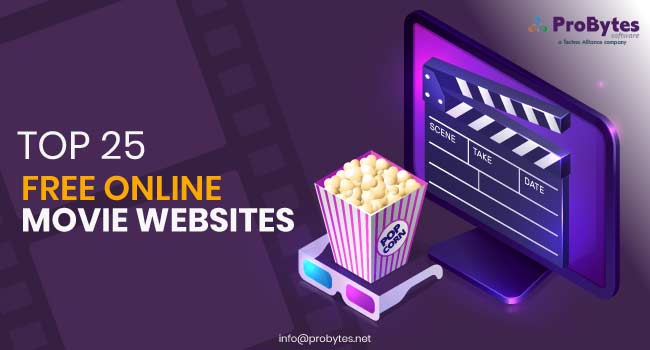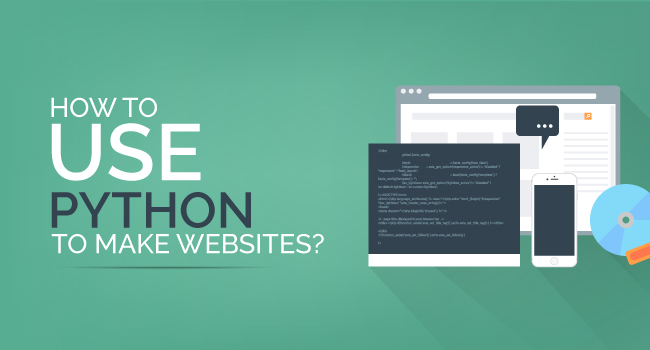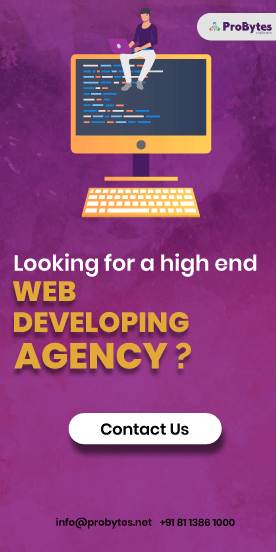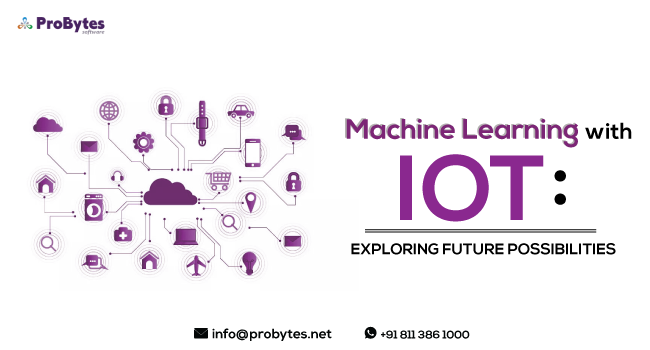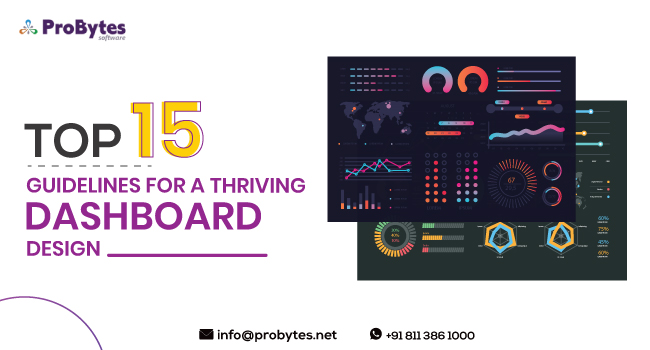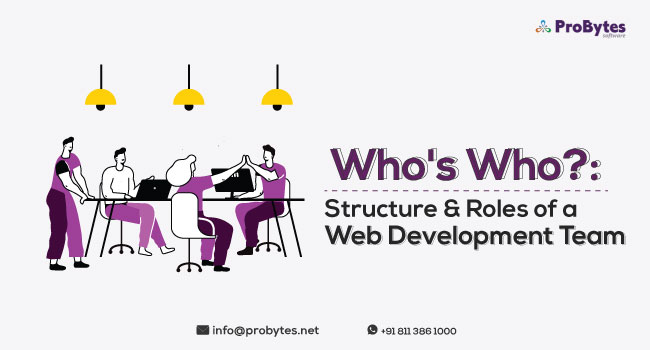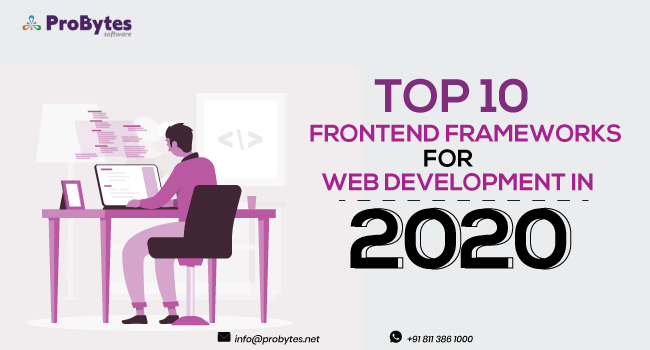Blog Category(283 Blogs)
15 Best Content Management Systems
A Content Management System (CMS) is one of the vital parts of a website. This software application helps create, modify and manage all the digital content of the website. There are two types of Content Management Systems – Web Content Management System (WCM) and Enterprise Content Management System (ECM).
WCM includes graphics, photos, videos, text, maps, interactive features and program code to display the content. An ECM, on the other hand, supports multiple users and includes document management, record retention, digital asset management and WCM.
The best content management systems have a front-end user interface and a content delivery application along with numerous core features.
Read Also: Web Development Vs Web Design – Want To Know The Difference?
The essential features in the best content management systems include:
- Intuitive indexing
- Format management
- Revision control
- Publishing functionality
- Discussion board and online help
- SEO-friendly URLs
- Admin panel
- Customizable templates
- Multiple language support
- File manager and audit log
This blog will elaborate on the structure and features of the 15 best content management systems so that you can decide on the right one for your website.
Best Content Management Systems
- 1. WordPress
- 2. Drupal
- 3. Joomla
- 4. Magento
- 5. Typeo3
- 6. Concrete5
- 7. Kentico
- 8. Magnolia
- 9. ImpressCMS
- 10. DjangoCMS
- 11. IBM Enterprise Content Management
- 12. Serendipity
- 13. Dotclear
- 14. Adobe Experience Manager
- 15. SharePoint
1. WordPress

Initial Release: 2003
Website: www.wordpress.com
Platform: PHP
Supported Database: MySQL, MariaDB
Operating System: Windows, Linux, Unix-like
Popular Themes: Twenty Nineteen, Twenty Seventeen, Hello Elementor, Astra, OceanWP, Storefront, Lyrical, Velux, Neve, One Press, Spacious, Scribbles
Plug-ins: Contact Form Email, Algori 360 Video, Yoast SEO, MC4WP: Mailchimp for WordPress, Smush Image Compression and Optimization, WP Forms, The Events Calendar, Contact Widgets, Smart Slider 3, WooCommerce Blocks,
Pricing:
Personal: INR 200/month
Premium: INR 350/month
Business: INR 800/month
Ecommerce:
INR 1440/month
WordPress is one of the most popular CMS’s as its versatile and flexible structure makes it suitable for all kinds of websites. Currently, more than 60 million websites have been built using the WordPress CMS. One of the reasons for the popularity of this CMS is its user-friendly interface, intuitive publishing and powerful editor.
Plus, this platform can be easily customized by installing plug-ins. Though there are numerous CMS, WordPress tops the list of the best content management systems for its customizable options and large helpful community.
2. Drupal

Initial Release: 2000
Website: www.drupal.com
Platform: PHP
Supported Database: Oracle, Maria DB, SQLite, Microsoft SQL Server, MySQL, Percona Server, PostgreSQL
Operating System: Windows, Unix-like
Popular Themes: Bootstrap, Zen, Omega, Adminimal, Tao, Adaptive, Rubik, Corporate Clean, Nexus, Mayo, Danland, Business, Fusion
Modules: Access statistics and logging, multi-site support, Descriptive URLs, Advanced Search, Multi-user content creation and editing, User Profiles, Workflow tools
Pricing: Free
This open-source content management system is used in the back-end framework for a host of websites, from personal blogging sites to government websites.
The CMS framework has more than 2750 themes and 42,650 modules. The Basic features of this CMS include menu management, RSS feeds, user account registration, maintenance, taxonomy, and system administration.
3. Joomla

Initial Release: 2005
Website: www.joomla.org
Platform: PHP
Supported Database: MySQL, MSSQL, SQLite, PostgreSQL
Operating System: Cross Platform
Popular Extensions: Akeeba Backup, Breezing Forms Pro, RSForm! Pro, Acy Mailing Starter, Event Booking, Contact Enhancement Component, JSitemap, EasyBlog, Eshop, Smart Slider, OS Property Real Estate
Pricing: Free
Coded in PHP, this free open-source content management system is built on a model–view–controller web application framework. The object-oriented programming techniques used in coding this platform enhances its function.
It has more than 8000 extensions and offers support for 75 languages. This CMS platform is search engine optimized and flexible. It also features multi-user permission levels.
4. Magento

Initial Release: 2008
Website: www.magento.com
Platform: PHP
Supported Database: MySQL
Popular Themes: Rope Responsive, Couture Fashion, Sure ICT Minimalistic Theme, Sure ICT Instagram Theme, Zemez Vini Fashion Theme
Extensions: Yotpo Reviews, Nosto personalization, AJAX catalog, Aheadworks Follow up emails, Aheadworks Featured Products, Amasty Mass Order Actions, Aheadworks RMA, BSS Commerce Delete Order
Pricing: Need to pay separately for extensions and themes, has monthly subscriptions for different categories such as Small Business Solutions, Mid Market Solutions, and Enterprise Solutions
Magento is one of the best content management systems for E-commerce websites. It offers customized solutions based on business type (small, mid), Business Need (B2B, omnichannel, mobile, global) and industry.
It also lets you find partners to set up the payment gateway. This CMS has resources to incorporate all the essential features of an
E-commerce website including customer support, order management, business intelligence, Amazon Sales, Adobe Commerce Cloud, and Google Shopping Ads.
5. Typeo3

Initial Release: 1998
Website: www.typo3.org
Platform: JavaScript, SQL, PHP
Supported Database: MySQL, PostgreSQL, Oracle
Operating System: Cross Platform
Extensions: Color Extractor, CKE Editor Microdata, Seminar Manager, MK Forms, Product Manager, Payment Transactor API, Address Listing, Cache Optimizer, Cookie Consent
Pricing: Free
This open source content management system is digital marketing enabled, which allows you to integrate the entire digital marketing suite directly into the CMS. It lets you efficiently and effectively tracks analytics and ads or automates outbound marketing solutions.
It is listed as one of the best content management systems as it offers the ultimate flexibility in building websites. The content and code can be operated separately and extensions can be added without affecting the existing code or writing new codes. It is available in 51 languages.
6. Concrete5

Initial Release: 2008
Website: www.concrete5.org
Platform: PHP
Supported Database: MySQL, MariaDB
Popular Themes: Fruitful, Pixel, Fundamental, Modena, Salix, Genesis, Elemental, Neat
Pricing: Free
Concrete5 is an open-source content management system that you can use to build and manage a website. Its top features are intuitive editing, media manager, dynamic forms, easy to install themes, drag and drop content, Addon support, one-click version update and responsive layouts.
You can use this CMS to build E-commerce sites, community portals, small business websites, and lots more.
7. Kentico

Initial Release: 2006
Website: www.kentico.com
Platform: ASP.NET
Supported Database: SQL Server
Pricing:
Kentico CMS Base – from $4,499
Kentico CMS Ultimate – from $9,999
Kentico EMS – from $19,999
Kentico EMS Corporate – from $399,000
Read Also: How Much Does It Cost To Create a Website in India
The Kentico CMS is designed to be used in online stores, E-commerce platforms and intranets.
The features available in this content management system are email marketing, contact management; lead scoring, content personalization, marketing automation, A/B testing, multilingual content, responsive design, blogs and forums, payment gateway integration and customizable checkout process.
8. Magnolia

Initial Release: 2003
Website: www.magnolia.com
Platform: Java
Supported Database: H2, MySQL, PostgreSQL, MSSQL, Derby, Oracle
Pricing: Contact Magnolia for the last pricing details
One of the best content management systems, the Magnolia offers a whole suite of features. It offers customized content management solutions for different industries such as retail, finance, travel, media, and commerce.
This enterprise CMS helps organizations optimize their services by providing actionable insights. It also uses AI tagging and content curate pools for use in marketing campaigns across various channels.
9. ImpressCMS

Initial Release: 2008
Website: www.impresscms.org
Platform: PHP
Supported Database: MySQL
Operating System: Cross-platform
Popular Themes: Bootstrap, Notebook, i-Style, Evolve
Modules: Catalogue 1.14, Content 1.2.1, CMS 3.1, imGlossary 1.03, Events 1.01, Library 1.03, myTube 1.06, Quotes 1.01, News 1.16, Sprockets 2.0, Partners 1.14
Pricing: Free
This community-developed CMS is secure and offers multi language support. The features of this CMS include site-wide search function, PDF generation, integrated comment system, granular permissions for users and groups, customizable themes and plug-ins.
10. DjangoCMS

Initial Release: 2007
Website: www.django-cms.org
Platform: Python, Django
Supported Database: PostgreSQL, Oracle, MySQL, SQLite 3
Operating System: Cross-platform
Add-ons: Aldryn Background Image, Aldryn Celery, Aldryn Django Debug Toolbar, Aldryn Django REST framework, Aldryn forms, Aldryn Google Analytics,
Pricing: Contact Django for the latest pricing details
This open-source content management system is available in more than 16 languages. Its plug-in architecture lets developers add plug-ins on the front end and even reuse them in apps.
It offers permission management, application addition, versioning, editorial workflow and search engine optimization.
11. IBM Enterprise Content Management

Initial Release: early 1990s
Website: www.ibm.com
Platform: Java
Supported Database: Oracle, DB2
Operating System: Windows 8, Mac, Web Browser (OS Agnostic)
IBM CMS Products: Content Foundation, Content Manager on Demand, Content Integrator, Content Foundation on Cloud, Content Manager, Content Navigator, FileNet Content Manager and Enterprise Content Management System Monitor
Pricing: The pricing depends on the IBM product and you need to contact IBM for pricing details
The Enterprise Content Management solution from IBM uses AI technology and analytics to deliver top-notch performance. It is suitable for organizations that have more than 100 employees.
This software suite is available in both on-premise and cloud models. It captures, analyses, and engages both structured and unstructured content.
12. Serendipity

Initial Release: 2002
Website: www.docs.s9y.org
Platform: PHP, Smarty
Supported Database: MySQL, MySQLi, PostgreSQL, SQLite
Operating System: Windows, Unix-like
Popular Themes: Andreas00, 1024px v1.1, Andreas06 v1.1.1, Andreas06 v1.1.1, Bar Sinister, Bartleby, Bazooka
Plug-ins: Editor, Themes, User Management, Views, User Self Registration, Quick Search, Show Tagged Entries, Amazon Recommendations, Flickr Badge, Google Quick Search, Wikipedia Finder, Flikr Photostream
Pricing: Free
Serendipity is a blog and web-based content management system designed with a plug-in architecture. It offers one-click installation. This CMS has a Smarty template engine and more than 120 plug-ins that users can apply to customize the website theme and layout.
It also allows for native import from other blog applications such as WordPress and Text pattern. Organize the plug-ins in the side bar with just drag and drop action. The CMS supports multiple languages.
13. Dotclear

Initial Release: 2002
Website: www.dotclear.org
Platform: PHP
Supported Database: MySQL, SQLite, PostgreSQL
Operating System: Cross Platform
Popular Themes: Grayscale, Fjalla, Noviny2, Bootstrap, MyBlog, Mellow, Tablet, Googlebot
Plug-ins: Tidy administration, socialShare 1.1, Scheduled Dashboard, Pending Dashboard, Hosting Monitor Dashboard, Last Spams Dashboard, Blogroll Page 2, Event Handler
Pricing: Free
This blog publication application has a multilingual interface. It is very popular in countries that speak French. The CMS has numerous features such as fully customizable themes, flexible template system, and multi-user administration with permission, automated installation, accessible and extensible.
14. Adobe Experience Manager

Initial Release: 2012
Website: www.adobe.com
Platform: Java
Supported Database: MongoDB, JCR (Apache Jackrabbit Oak)
Operating System: Windows, OS X, Linux
Pricing: The pricing depends on the size of the organization and the configuration, which includes a number of users, storage, service level agreement and other add-ons.
This platform offers digital assets as well as content management services. It is a part of the Adobe Marketing Cloud. The Adobe Experience Manager is AI powered and offers a host of solutions including web content management, cross-channel management, and personalized experiences.
15. SharePoint

Initial Release: 2001
Website: www.office.com
Platform: ASP.NET or x64?
Supported Database: SQL Server, SQL Express
Operating System: Windows Server 2016 & 2019
Pricing:
SharePoint Online Plan 1 – INR 330 user/month
SharePoint Online Plan 2 – INR 660 user/month
Office 365 Enterprise E3 – INR 1320 user/month
This document management system from Microsoft is integrated with Microsoft Office applications. It is a web-based intranet system that can be used in an organization to share documents and streamline the process. The two types of SharePoint CMS are Standard and Enterprise.
Read Also: Top 10 Web Development Companies In India
The content management system that you choose for your website depends on the website’s purpose and function. Each content management system has features and functions to deliver optimum performance in certain websites and for particular applications.
We have an expert team of experienced developers who can assist you in finding the best content management system for your website and integrate it in the website. Contact us for details.

 Python
Python Magento
Magento Odoo
Odoo How To
How To How Much
How Much Yii Development
Yii Development Core PHP
Core PHP Prestashop
Prestashop Latest News
Latest News Education
Education Web Design
Web Design Business
Business Ecommerce
Ecommerce Travel
Travel Banking and Finance
Banking and Finance Web Development
Web Development Ruby On Rails
Ruby On Rails Joomla Development
Joomla Development Ecommerce
Ecommerce Magento Development Services
Magento Development Services Hire a Developer
Hire a Developer Web Crawling Services
Web Crawling Services
